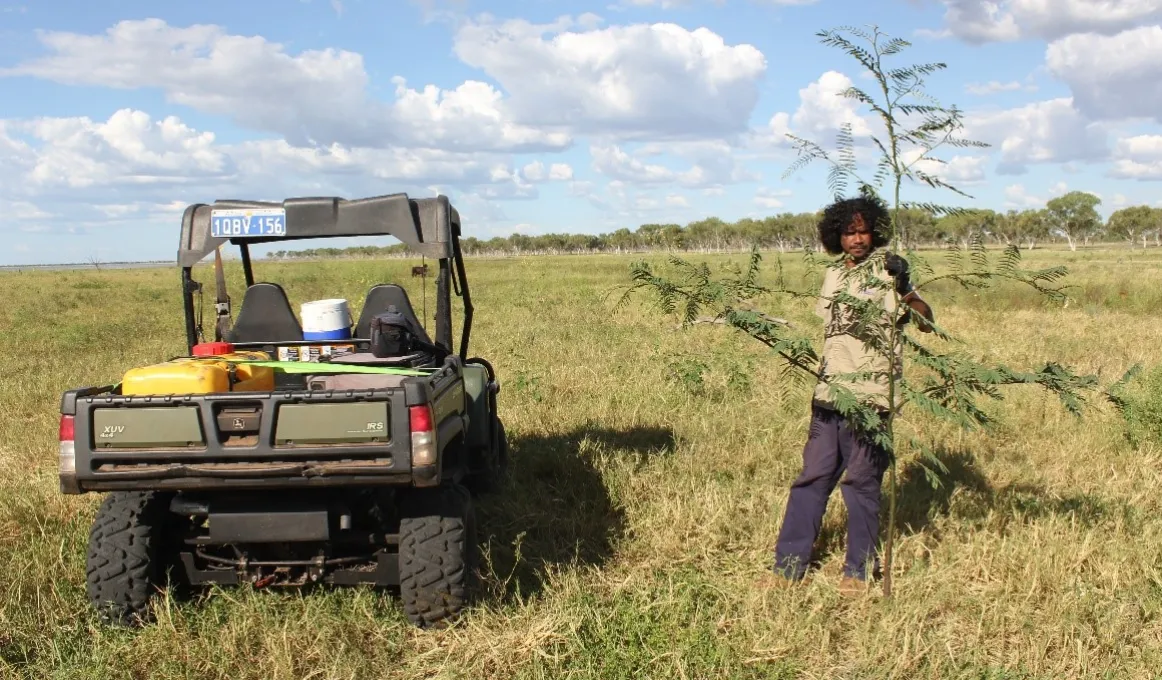World Ranger Day - stopping the spread of Mimosa pigra in WA

In the East Kimberley the Aboriginal Rangers for Reserve 31165 are working hard to prevent Mimosa pigra, a noxious weed, from spreading across northern WA.
World Ranger Day is an opportunity to focus on the activities of Australia’s Indigenous rangers and their crucial role in protecting Australia’s natural heritage from invasive species.
Mimosa pigra is a Weed of National Significance (WONS) and a declared pest in WA. It is one of Australia’s worst invasive species that has caused great environmental damage in Queensland and the Northern Territory.
On the shores of Lake Argyle, the 4 Aboriginal Rangers for Reserve 31165, working alongside WA Parks and Wildlife staff, have had great success in reducing and controlling the spread of Mimosa pigra.
Brendan Fox, Operations Officer with Parks and Wildlife, said spraying with a herbicide is the main control technique but when the weed was first detected in thick clumps they would have to cut them down and spray.
‘5,547 Mimosa pigra plants were located and treated with herbicide during 2017. 660 plants were found and treated in 2018. This year to date, only 66 plants have been found and treated. This low number could also be attributed to the lack of rain early 2019’, Brendan said.
Mimosa pigra forms dense, thorny, monospecific thickets up to 6m tall which prevent access to humans and animals and restrict mustering. It also restricts harvesting of bush food by Aboriginal people and the thickets harbour feral animals.
It takes over and replaces grasslands and reduces the carrying capacity of valuable floodplain country.
Rangers have had to adopt many different strategies to manage this weed, including using helicopters and air boats for surveying, and utilising all-terrain vehicles and helicopters to get to and treat the infestations sites.
Through continued efforts, the rangers hope to contain the future spread of Mimosa pigra throughout this important Ramsar listed wetlands of the East Kimberley.
The rangers also work to control feral pigs and cats, help to manage the East Kimberley Saltwater Crocodile Management Program on Lake Kununurra and recently supported the release of 100,000 more Barramundi Fingerlings into the same lake. (650,000 released over the past 6 years).
Find out more
The Australian Government supports Indigenous rangers to protect and manage their land, sea and culture.
For more information, see Indigenous Rangers - Working on Country and World Ranger Day.